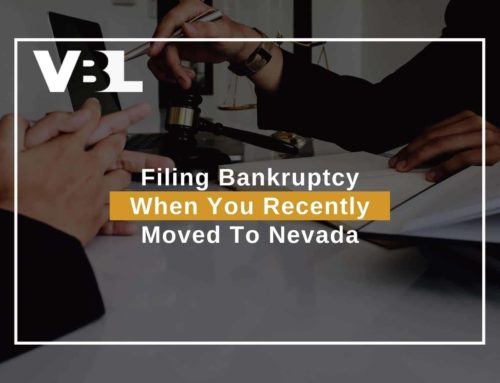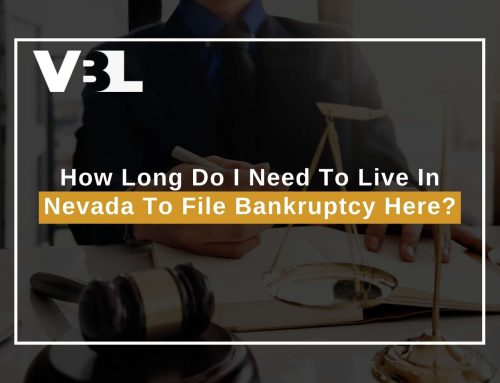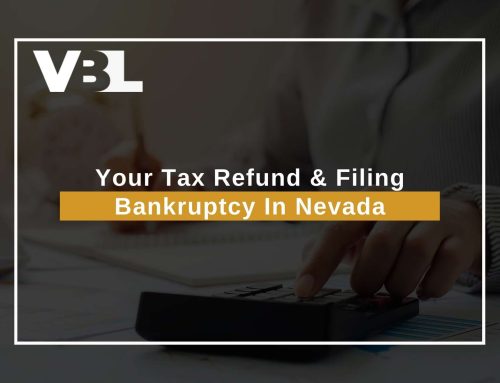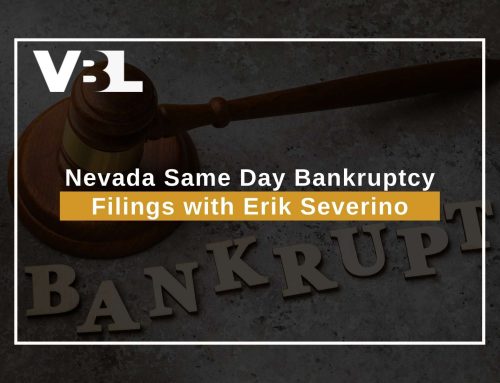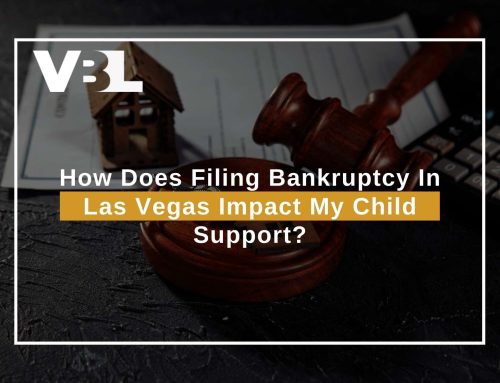Bankruptcy & Tax Debts
How Filing Chapter 7 Or Chapter 13 Bankruptcy Can Help You With Tax Debt
Our Las Vegas Bankruptcy Attorneys take a look at how filing chapter 7 or chapter 13 bankruptcy could help you with your tax debts. The State of Nevada and the IRS don’t mess around when it comes to collecting on taxes. Declaring bankruptcy in Nevada may be able to eliminate or reduce your tax liability. Contact our experienced debt relief attorneys at The Law Offices of Erik Severino for a free consultation. We offer consults over the phone and have some Saturday bankruptcy consultations available. Contact our Nevada Bankruptcy Lawyer today.
Our clients often come to us with misconceptions about declaring bankruptcy in Nevada. One of those is that it is impossible to discharge tax debts by filing bankruptcy. However, many of our clients find that they can actually ease the burden of tax debts with a bankruptcy filing. If you’re struggling with tax debts, don’t take the risk of making errors in the bankruptcy process, jeopardizing your financial future. Call our Las Vegas, Henderson, and Reno bankruptcy law firm for your free initial consultation with a seasoned bankruptcy lawyer. Additionally, we will also provide an affordable quote for legal services, including payment plan options.

Tax Debt Dischargeability Criteria
Your tax debts must meet certain requirements in order to be discharged by either Chapter 7 or Chapter 13 bankruptcy. Otherwise, your bankruptcy filing won’t discharge your debts, and you will be disqualified from discharging debts through bankruptcy again for a certain number of years. Therefore, it is crucial that your bankruptcy filing is timed accordingly. Contact our Nevada bankruptcy team for expert guidance in the matter at unbeatable prices.
- The taxes have been due for at least three (3) years. This due date includes any extensions that the filer may have requested. As three years is a significant amount of time, you won’t be able to discharge brand-new tax debts.
- The tax returns have been filed for at least two (2) years. This can present a problem for bankruptcy filers who are behind on tax filings. This is measured as the date that the filer filed the return, not the date that the returns were due.
- The taxes were assessed at least 240 days prior. This can be another obstacle for bankruptcy filers who are behind on tax filings. The date is measured from when the assessment is finalized.
- The tax filing wasn’t fraudulent or tax evasion. The filer can’t have purposefully lied on their tax returns or committed any other form of fraud or evasion.
Tax Debt & Chapter 7 Vs. Chapter 13 Bankruptcy
After determining if your tax debt will be dischargeable in bankruptcy, you’ll probably want to figure out which chapter(s) you are eligible to file. For most people, the decision is between Chapter 7 and Chapter 13 bankruptcy.
Chapter 7 Bankruptcy
Chapter 7 bankruptcy liquidates unsecured debts without any repayment from the filer. That means credit card debts, medical bills, personal loans, and more will be wiped away by Chapter 7 bankruptcy. But this immense benefit is only available to those without substantial financial means. To qualify, you must either fall under Nevada’s median income for your family size, or pass the Means Test. Only your spouse and children under the age of 18 can count towards your family size. If you share joint custody of your child with an ex, this can present additional issues for bankruptcy qualification purposes. For Nevada bankruptcy filers who file after May 1, 2021, the annual salary limit for a household of one is $54,394. This translates to $4,532.83 per month. It increases to $69,804 or $5,817 monthly for a household of two, and $77,536 or $6,461.33 monthly for a household of three. Your average income over the past six months will be used for income qualification purposes.
If your income exceeds Nevada’s median household income for your family size, you will need to use the Means Test. Just like a median comparison, you will use your average monthly income from the last six months for the Means Test. You will then deduct certain expenses from your monthly income, like reasonable food and housing expenses, child support, student loans, and more. If you reach a negative number, you will qualify for Chapter 7 bankruptcy. Further steps will need to be taken if your Means Test calculation falls within a certain range. It’s best to hire an attorney to conduct the Means Test on your behalf to ensure that your case isn’t later dismissed due to errors in your calculations.
Another major consideration when deciding between Chapter 7 and Chapter 13 is whether your assets will be safe in a Chapter 7 bankruptcy. The bankruptcy court won’t let you keep a house that is worth millions of dollars and discharge thousands of dollars in unsecured debts. In a Chapter 7 bankruptcy, exemptions must be applied to all of the debtor’s assets, or else the trustee can seize them to sell and pay off the estate’s debts. The Nevada homestead exemption is $605,000. This represents equity, so your home can be worth more than $605,000 as long as your mortgage brings your total equity inside the exemption range. The motor vehicle exemption in Nevada is $15,000 in one vehicle, but this exemption is unlimited for a debtor with a disability. Your household goods, furniture, appliances, etc., can be worth up to $12,000. Nevada also has a wildcard exemption of $10,000 which can be used on any asset of the debtor’s choosing. Make sure you meet Nevada’s residency requirements and that your assets are exempt in Nevada with one of our Chapter 7 bankruptcy attorneys today.
Chapter 13 Bankruptcy
Chapter 13 bankruptcy operates much differently than Chapter 7 bankruptcy. It is available to people who don’t pass the Means Test, and some people may actually be disqualified from Chapter 13 bankruptcy for not making enough money. Instead of wiping away debts in a matter of months, Chapter 13 reorganizes debts into a payment plan that lasts either 3 or 5 years. The length of the payment plan depends on how the filer’s income compares to their state’s median income for their household size. Assets worth more than Nevada’s bankruptcy exemptions will be safe in a Chapter 13 bankruptcy, but most financed assets will need to be paid in full in a Chapter 13 payment plan. For more information about Chapter 13 bankruptcy payment plans, contact our office to schedule your free consultation.
One of the good things about filing Chapter 13 bankruptcy to deal with tax debts is that it can help with taxes that aren’t dischargeable in Chapter 7 bankruptcy. Debts are paid in order of four categories in a Chapter 13 payment plan. First, bankruptcy trustee and attorney’s fees are paid. Next, secured debts, followed by priority debts. This is where tax debts that wouldn’t be dischargeable in a Chapter 7 bankruptcy would be paid. Unsecured debts are paid fourth and last, and might not be paid in full in your repayment plan (but will still be discharged). Tax debts that are dischargeable under Chapter 7 bankruptcy will be paid in the fourth category of a Chapter 13 bankruptcy.
Additional Considerations When Filing Bankruptcy On Tax Debt
Filing bankruptcy to discharge tax debt can be a complex subject. There are a few extra issues to keep in mind if you have tax debts. First, tax debts that were assessed on unfiled tax returns are not dischargeable in bankruptcy. You also need to differentiate whether you have a tax debt, or a tax lien. If the IRS secures a judgment against you for unpaid taxes, they can later place a lien on your property. Lien debts are secured to the asset, so they are no longer an unsecured debt. This makes it nondischargeable in Chapter 7, and paid in the third category of a Chapter 13 payment plan.
Your Bankruptcy Questions, Answered
If you’re struggling with tax debts, you don’t have to navigate the complexities of Chapter 7 and Chapter 13 bankruptcy alone. Our bankruptcy lawyers are experienced in helping Nevada residents discharge debts stemming from taxes, credit cards, medical bills, and more. Our Nevada debt relief team will support you every step of the way, making sure your case- and your debts- are discharged. Move forward with a fresh start, and build a better financial future. Call now to speak with one of our Las Vegas and Reno bankruptcy lawyers. We offer affordable rates with payment plan options, including a Zero Down Bankruptcy filing option.

Las Vegas Bankruptcy Lawyers
LAS VEGAS
7251 W Lake Mead BLVD #300
Las Vegas, NV89128
Office: 702-879-2499
Email: [email protected]
HENDERSON
1489 W Warm Springs Rd. Ste 110
Henderson, NV 89014
Email: [email protected]





